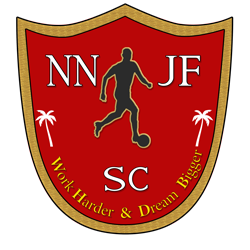The Power of Teamwork and Communication in Soccer
A Guide for NNJF SC Soccer Club Academy
Introduction
In the world of soccer, individual talent shines brightly, but it is the collective effort of the team that truly leads to victory. At NNJF SC Soccer Club Academy, we emphasize the importance of teamwork and communication as the cornerstones of our success. Whether you're an aspiring player or a seasoned pro, understanding and mastering these elements is essential. This article delves into why teamwork and communication are vital and offers practical guidance on how to excel in both areas.
The Essence of Teamwork
- Unity and Cohesion:
Teamwork is about bringing together diverse talents and working towards a common goal. A soccer team functions best when each player understands their role and trusts their teammates. Unity and cohesion on the field translate to seamless play, where every pass, movement, and decision is in sync with the team’s strategy.
- Shared Responsibility:
Soccer is a game of shared responsibility. Each player, regardless of their position, contributes to both offense and defense. When the team works as a unit, covering for each other and filling in gaps, it becomes a formidable force. Shared responsibility fosters a sense of ownership and accountability, motivating every player to give their best.
- Building Team Spirit:
A positive team spirit is crucial. Encouraging and supporting each other, celebrating successes, and learning from failures together build a resilient team. Activities off the field, such as team-building exercises and social events, strengthen bonds and improve on-field performance.
The Role of Communication
- On-Field Communication:
Clear and effective communication during a game is essential. Players must convey their intentions, whether calling for the ball, directing teammates, or signaling defensive alignments. Verbal and non-verbal cues (like hand signals and eye contact) ensure everyone is on the same page.
- Communication Styles:
Different situations require different communication styles. For instance, a quick shout during a fast break is different from a detailed discussion during a timeout. Understanding when and how to communicate is key to maintaining focus and execution.
- Feedback and Constructive Criticism:
Open lines of communication mean players can give and receive feedback constructively. Criticism should be aimed at improvement, not blame. Creating an environment where players feel comfortable expressing themselves leads to better collaboration and continuous improvement.
Practical Guidance for Aspiring and Pro Players
- Developing Trust:
Trust is the foundation of teamwork and communication. Participate actively in training sessions, show reliability in your role, and respect your teammates’ contributions. Trust builds over time through consistent actions and mutual respect.
- Active Listening:
Communication is not just about speaking; it’s equally about listening. Pay attention to your coach’s instructions, your teammates’ calls, and the flow of the game. Active listening ensures you’re always aware of your surroundings and ready to respond appropriately.
- Enhancing Team Chemistry:
Spend time understanding your teammates’ playing styles, strengths, and weaknesses. Adapt your game to complement theirs. For example, if a teammate is particularly fast, anticipate their runs and pass the ball into their path. This level of understanding enhances team chemistry and effectiveness.
- Practice Communication Drills:
Incorporate communication drills into training. Exercises like passing sequences where players must call out names or small-sided games focusing on constant communication can improve on-field interactions. Practicing these drills regularly makes effective communication second nature.
- Embracing Leadership Roles:
Leadership is not just for the captain. Every player can take on leadership responsibilities by encouraging others, setting a good example, and maintaining a positive attitude. Leaders on the field facilitate better teamwork and inspire confidence in the team.
- Learning from Experience:
Reflect on games and training sessions to identify communication and teamwork gaps. Discuss these with your coach and teammates to develop strategies for improvement. Continuous learning and adaptation are vital for progress.
Conclusion
At NNJF SC Soccer Club Academy, we believe that teamwork and communication are the bedrock of soccer excellence. By fostering unity, trust, and open communication, we create an environment where every player can thrive. Whether you're just starting your journey or honing your skills as a pro, remember that success in soccer is a collective effort. Embrace these principles, and together, we’ll achieve greatness on and off the field.
